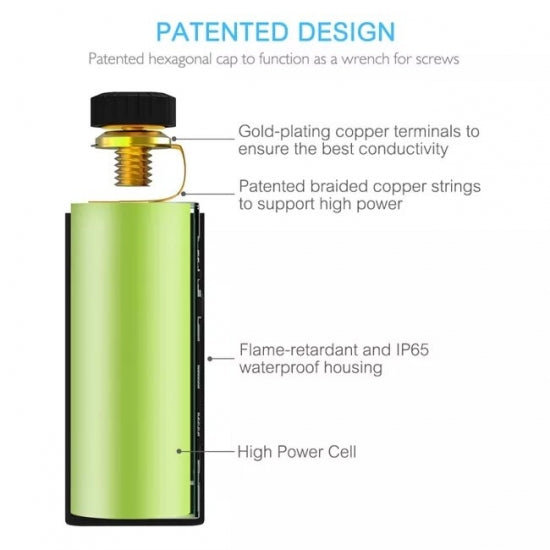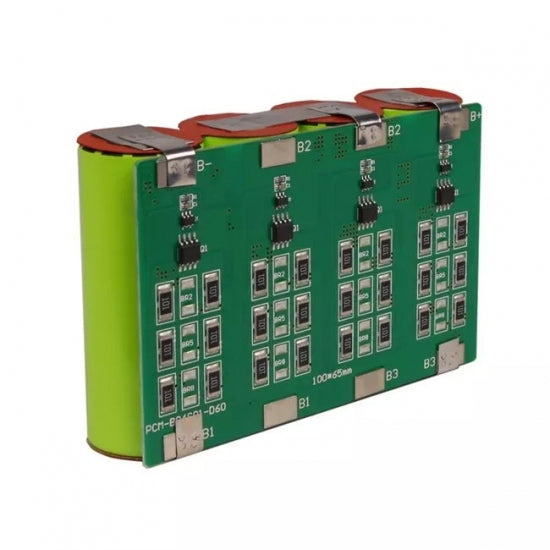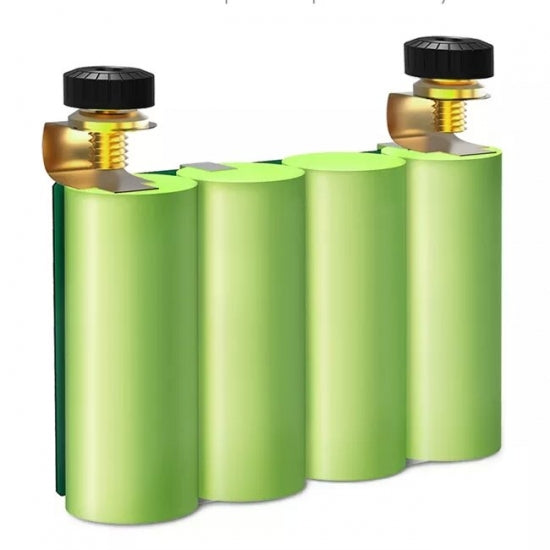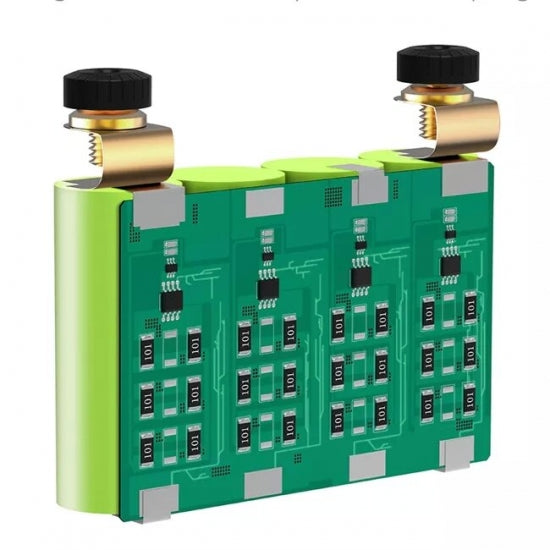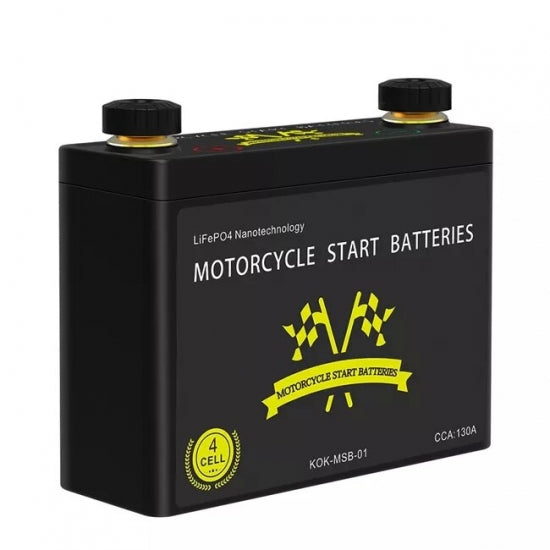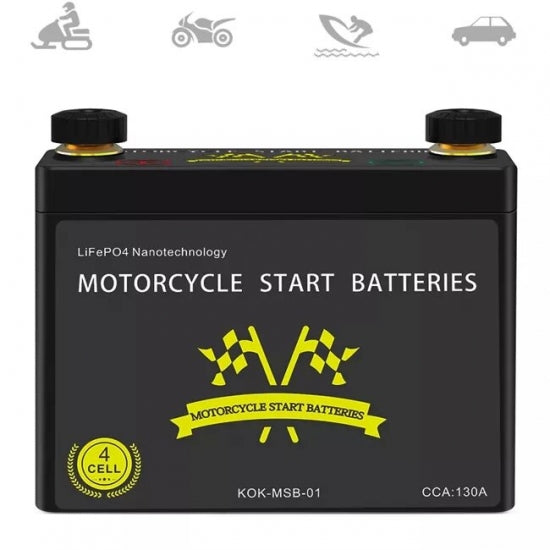KOKPower
12v Lithium Motorcycle Starter Battery
12v Lithium Motorcycle Starter Battery
| Item | Parameter |
|---|---|
| Nominal Voltage | 13.2V |
| Nominal Capacity | 2500mAh |
| Lead-Acid equivalent (pb-eq) | 12V 7-9Ah |
| Cranking Amps | 130A |
| Recommended fast charge current | 15 min/10A |
| Recommended charge method | CC/CV 14.6V |
| Overdischarge voltage | 9.2V |
| Battery weight | 455g |
| Gross weight (with gift box) | 615g |
| Dimensions (w/o terminals) | 110mm * 38mm * 85mm |
| Dimensions (w/ terminals) | 110mm * 38mm * 98mm (w/ terminals) |
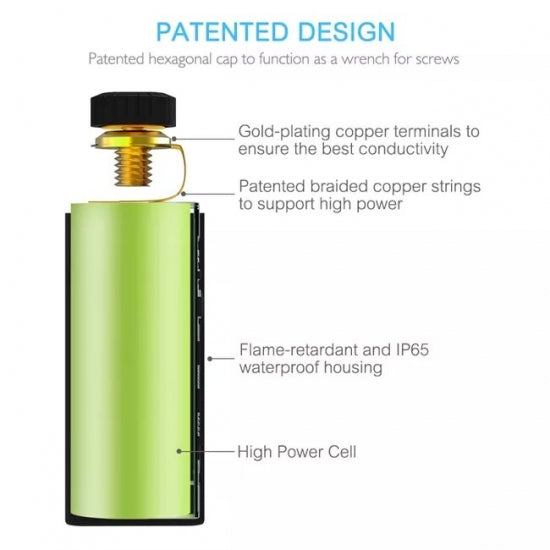
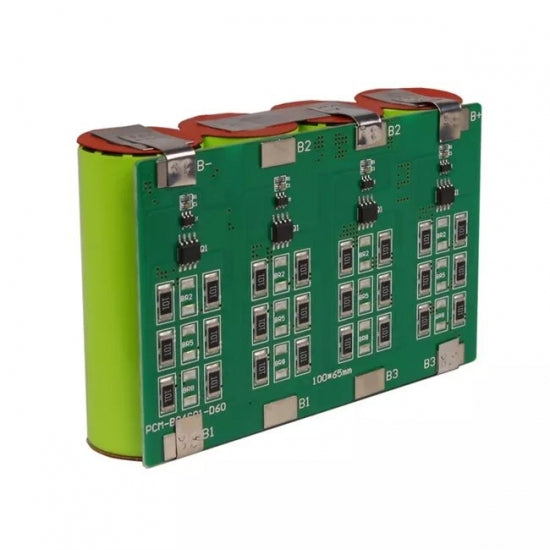
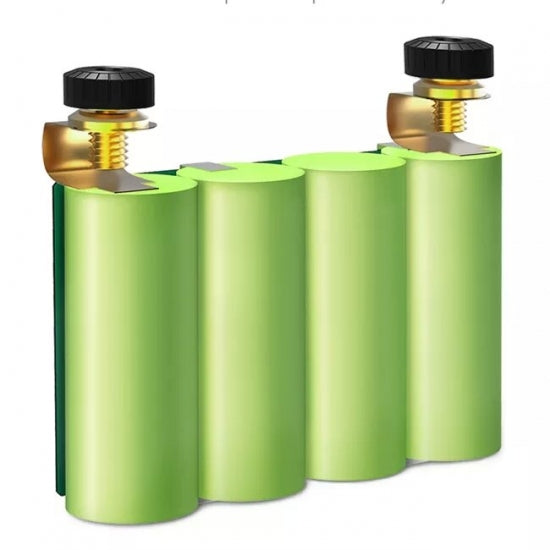
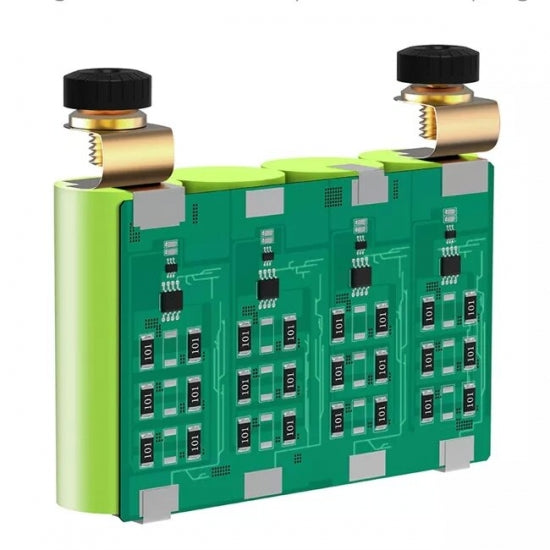
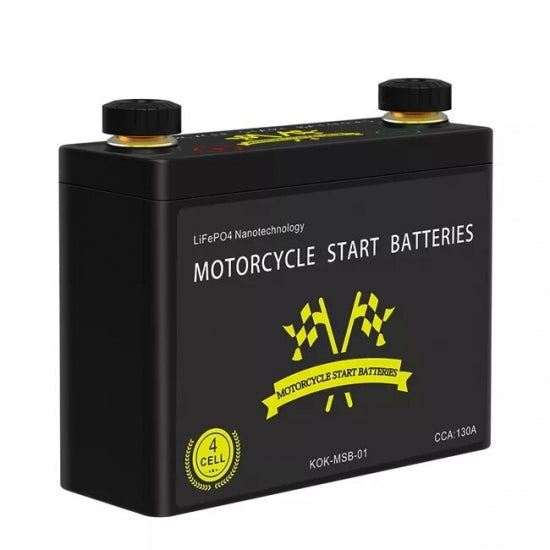
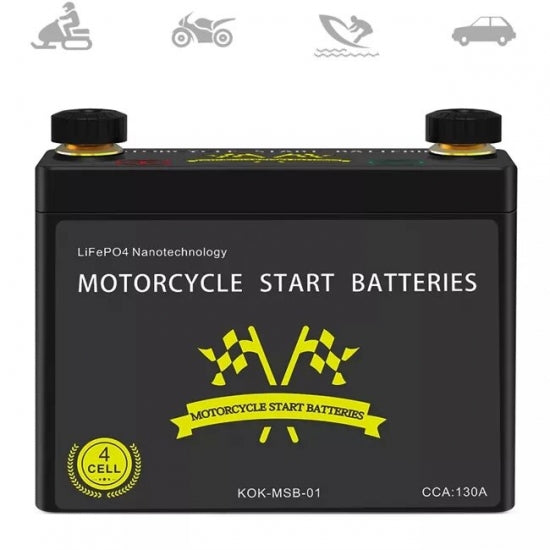
Details
Features
Compared with the lead-acid batteries, the LiFePO4 motorcycle start batteries are:
- Smaller: 1/2 of the size
- Lighter: 1/3 of the weight
- Safer: Can be installed in any direction without leakage
- Longer Life: 7-10 times longer
Deep Cycle Battery, Starting Battery and Dual-purpose Battery:
- Dual-purpose: deep cycle and starting battery
- Includes BMS for larger 12V motorcycle start batteries
- BMS protects against overcharging, overcurrent, overtemperature, and overdischarge
Extensive Usability and Patented Design:
- Compatible with almost all 12V motorcycles
- High discharge current, suitable for various motorcycle models
- Braided copper strings for high power support
- Gold-plating copper terminals for best conductivity and oxidation prevention
- Strong cell holders to protect against vibration and overheating
- Flame-retardant and IP65 waterproof housing
Why Choose Us?
-

Reliable Power
Delivers reliable power for various applications, ensuring uninterrupted operation.
-

Versatile Use
Suitable for diverse uses, from motorcycles to energy storage systems.
-

Enhanced Safety
Can be installed in any direction without risk of leakage or damage.
-

Longer Lifespan
Lasts 7-10 times longer than conventional lead-acid batteries.
-

Superior Function
Provides high cranking amps and fast charging for optimal performance.
-

Advanced Protection
Built-in Battery Management System prevents overcharging, overcurrent, overheating, and overdischarge.
-

Non-Toxicity
Uses Nano LiFePO4 technology, which is non-toxic and environmentally friendly.
-

Robust Durability
Features strong cell holders and gold-plating terminals for protection against vibration, overheating, and oxidation.
FAQs
What is the lifespan of KOK POWER LiFePO4 batteries?
Our LiFePO4 batteries typically last 7-10 times longer than conventional lead-acid batteries, with up to 5000 deep cycles and 50000 ignition times.
Can LiFePO4 batteries be installed in any direction?
Yes, our LiFePO4 batteries can be installed in any direction without risk of leakage or damage.
What safety features are included in KOK POWER batteries?
Our batteries include a Battery Management System (BMS) that protects against overcharging, overcurrent, overheating, and overdischarge.
Are KOK POWER batteries environmentally friendly?
Yes, our batteries use Nano LiFePO4 technology, which is non-toxic and environmentally friendly.
What applications are KOK POWER batteries suitable for?
Our batteries are suitable for a wide range of applications, including motorcycles, energy storage systems, outdoor activities, and more.
Do KOK POWER batteries support fast charging?
Yes, our batteries provide high discharge power and fast charging capabilities.
What is the warranty period for KOK POWER batteries?
We offer an 18-month warranty on all our batteries to ensure customer satisfaction and confidence.
How do KOK POWER batteries compare in weight and size to lead-acid batteries?
Depending on the product, our batteries can be up to 1/2 the size and 1/3 the weight of traditional lead-acid batteries, providing better performance and easier handling.
Do KOK POWER batteries require maintenance?
Our batteries are designed to be maintenance-free, provided there are no parasitic drains.
What makes KOK POWER batteries durable?
Our batteries feature strong cell holders, gold-plated copper terminals for optimal conductivity, and robust construction to protect against vibration, overheating, and oxidation.

